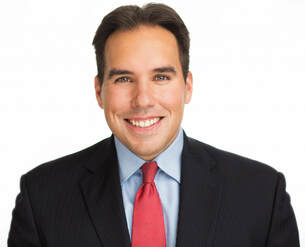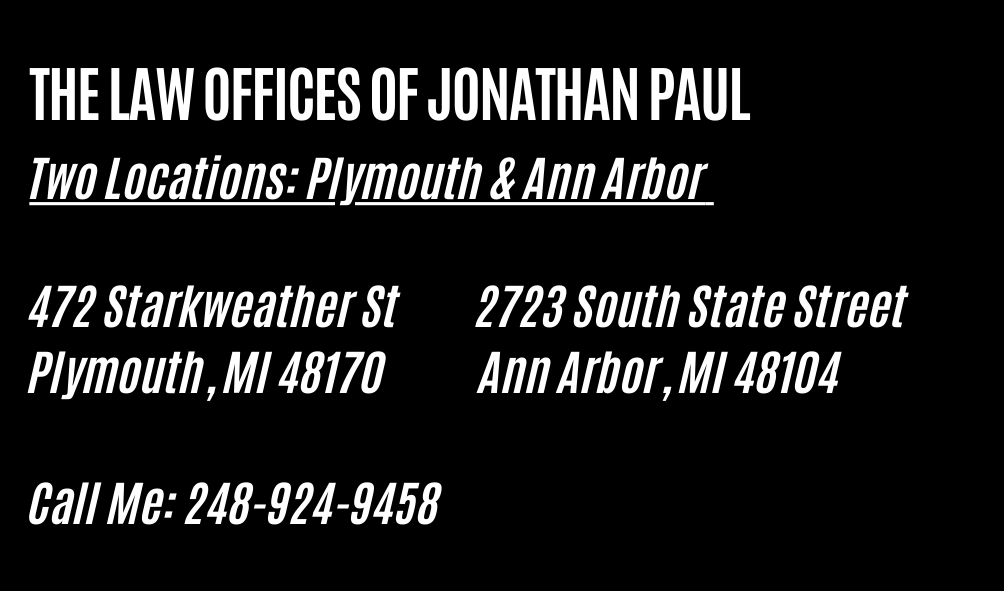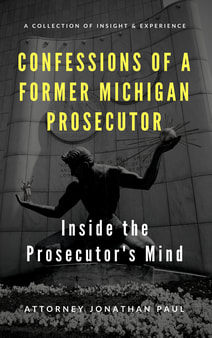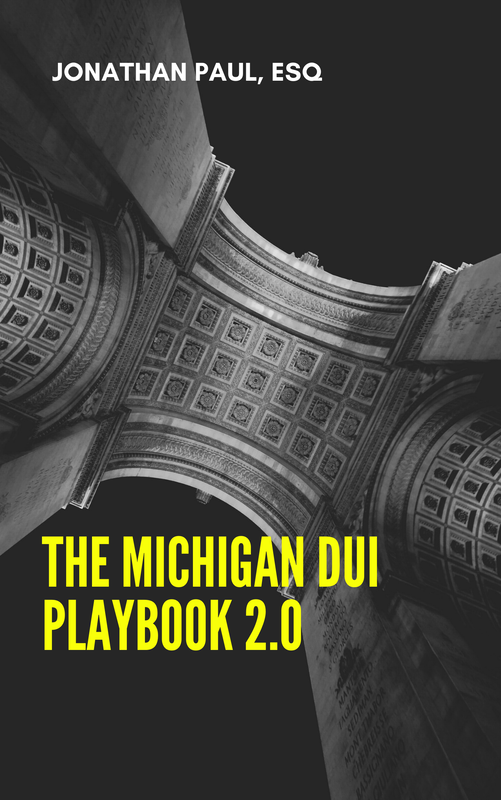|
When charged with a DUI in Michigan, there are a number of consequences; one of those consequences is impact on your driver’s license. The court has no say over what happens to your license, because the Michigan Secretary of State is the lone authority on what happens to your ability to drive if convicted of DUI offense.
The Michigan Secretary of State can only sanction a Michigan driver’s license, which means if you have an out of state license, Michigan cannot do anything other than control your ability to drive within the State, but not outside of the State. The Secretary of State can either restrict, suspend or revoke a driver’s license. A restriction allows some driving, typically to school, work, medical appointments, community service, counseling, court and a few other exceptions. A suspension can take away the driver’s ability to drive for a limited period of time, and once the time passes, the driving privileges resume. Revocation is a lifetime loss of driving privileges, but they can be restored by the Secretary of State at a future, but uncertain date. License impact depends upon the type of conviction. Here is a brief breakdown of the most common offenses. * Impaired Driving - 90 days restricted driving * Zero Tolerance - 30 days restricted driving * Intoxicated Driving/Drugged Driving - 30 day suspension, 150 days restricted * Super Drunk - 45 days restricted driving, 320 restricted with ignition interlock installed * Second Offense - 1 year suspension * Third Offense - license revoked, eligible to reapply after 1 year In Michigan, the criminal penal code says it’s a second offense if you have two convictions within seven years; the date of offense is used on the subsequent offense to make this determination. So if you were convicted on September 2nd 2001, you would fall into the second offense category if you are subsequently arrested on or before September 2nd 2008. For a third or more offense, there is no time limit; it’s simply within a lifetime. So you can have a conviction from 1950, 1999 and 2016. There isn’t much strategy in timing when it comes to the criminal code; the best approaches are defeating the case, or resolution with a reduction, sobriety court or sentencing agreement. While timing for the criminal code can’t be impacted, it is the exact opposite when it comes to the Secretary of State. The Secretary of State has the same seven year mark for second offenses, but they use the conviction date for measuring this period. This means that if you were convicted of a DUI on September 2nd of 2001, and subsequently arrested in the summer of 2008, there is a lot of strategy involved. If my client has decided to resolve the case or even go to trial, we make sure the “end” of the case takes place after September 2nd of that year, which would put us outside of the seven year window. The client if convicted would be treated as a first offender outside of the seven year window. This strategy could mean the difference between losing his/her ability to drive for a full year vs being restricted for 90 days. This same strategy is even more crucial when it comes to third offenses. Unlike the criminal penal code, the Secretary of State does use a ten year window. Many of my clients have two very old DUI’s from 10 to 20 years ago. While they will still be charged as a third offender, they can escape the license sanctions for a third offender with the right timing. There’s a chance a third offender could be treated as a second offender, or even a first offender with the right timing strategy. Comments are closed.
|
Click to Email Me Categories
All
|
Ann Arbor Office LocationPlymouth Office Location |
Representing DUI Clients in MichiganRepresenting clients charged with a DUI in Ann Arbor, Canton, Brighton, Howell, Saline, Adrian, Taylor, Plymouth, Northville, Westland, Ypsilanti, Pittsfield Towsnhip, Warren, Sterling Heights, Farmington, Pontiac, Romulus, Lansing, Novi, South Lyon, Southfield, Birmingham, Bloomfield Hills, Royal Oak, Troy, Rochester, Jackson, East Lansing, Garden City, Livonia, Dearborn, Detroit, St Clair Shores, Hazel Park, Ferndale, Madison Heights, Waterford, Milford, Shelby Township Clarkston, Oak Park, Berkley, Fraser, Sterling Heights, Clinton Township and others throughout Washtenaw, Wayne, Monroe, Jackson, Genesee, Macomb, Ingham, Lenawee, Livingston and Oakland County.
|








